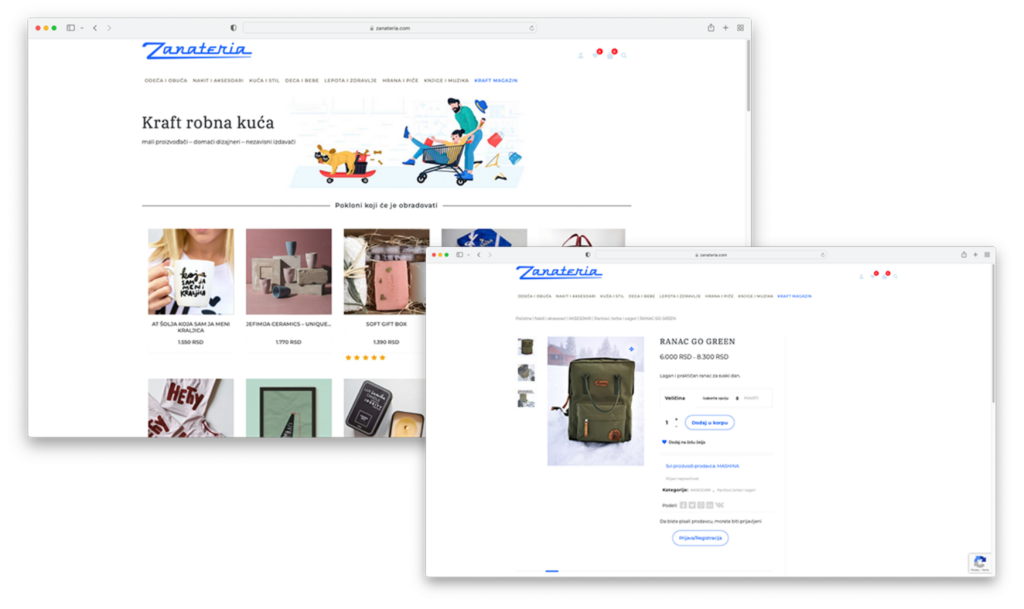Aleksandar Scepanovic recently shared insights into the second chapter of Zanateria’s business journey with Netokratry, highlighting both the triumphs and trials the team has faced. As with any entrepreneurial endeavor, Zanateria’s growth has been marked by strategic decisions, complex challenges, and moments of significant learning—particularly concerning the relationship with the artisans and producers featured on their platform.
“The past two years have been both challenging and exhilarating,” Aleksandar remarked, reflecting on a period that has tested the resilience and adaptability of the Zanateria team. When the platform launched, there was optimism and carefully laid plans. However, the onset of the global pandemic drastically altered the landscape, forcing the team to pivot quickly to navigate the unforeseen changes.
In response to these upheavals, the team moved swiftly, learning and adapting on the fly. They strengthened their community and forged new partnerships, eventually earning recognition by winning an award at the OTP Bank competition. This accolade, Aleksandar noted, couldn’t have come at a better time, providing both a morale boost and a much-needed financial injection.
Navigating Growth and Learning from Mistakes
One of the pivotal moments for Zanateria was winning the OTP Bank award, which gave the team the confidence to push forward. “The financial part of the prize helped us develop new functionalities on the site and invest more in marketing,” Aleksandar explained. The award also brought legitimacy and attention from mainstream media, which significantly increased traffic to the site.
However, this surge in visibility led to a strategic misstep. In an effort to capitalize on their newfound popularity, Zanateria aggressively expanded the number of producers and products on the platform. The idea was to establish the platform as the definitive marketplace for small domestic producers. Unfortunately, the rapid growth in inventory wasn’t matched by a corresponding increase in sales.

This decision resulted in operational headaches for the small, three-member team, including an influx of complaints about unreliable sellers and undelivered shipments. It became clear that the platform’s growth needed to be managed more carefully. The team spent months cleaning up the platform, removing irresponsible sellers, redefining partnership agreements, and establishing clear criteria for future collaborations.
Today, many of those initial issues have been resolved, and Zanateria has stabilized. The platform now hosts 500 active small manufacturers offering over 5,000 products. Additionally, Zanateria has opened its doors to select imported products, expanding its offerings while maintaining its commitment to unique, high-quality goods.
A Stable Platform with a Growing Community
Zanateria has reached a point where it enjoys stable organic traffic and a growing customer base. “Over 60% of our customers return to the site to make repeat purchases,” Aleksandar shared. The platform experiences hundreds of sales each month, with significant spikes during holidays like New Year’s, Valentine’s Day, and International Women’s Day.
Customer feedback has been crucial in refining the shopping experience. “We’ve improved several aspects of the buying process based on customer suggestions,” Aleksandar noted. A recent survey among registered customers also provided valuable insights, reinforcing the team’s belief in the potential for continued growth. As the trend towards locally-made, high-quality products gains momentum worldwide, Zanateria is poised to benefit—though Aleksandar emphasized that sustainable growth requires continuous effort in educating both buyers and sellers, as well as strategic marketing and support programs.
Building for the Future
The pandemic, which hit just three months after Zanateria’s launch, posed significant challenges but also created opportunities. While initial panic stalled sales, the shift towards online shopping soon led to a surge in demand. This rapid growth exposed several operational issues, but it also accelerated the team’s learning curve, helping them connect with customers more effectively.
As the workload increased, Zanateria expanded its team, bringing on two young professionals to manage social media and contribute to the platform’s craft magazine. The team plans to hire more staff to handle day-to-day operations, improve the purchasing process, and enhance communication with users.
Looking ahead, Zanateria is focused on forging partnerships with organizations that support entrepreneurship in Serbia. Although the team has not actively sought external investment, they have received offers and interest from various quarters. For now, however, they remain committed to achieving sustainability on their own terms.
In conclusion, Zanateria has evolved into a stable and functional platform, surrounded by a community that shares its values. Aleksandar is confident that the platform will continue to grow organically, in line with market potential and available resources. “For small and medium-sized enterprises, the fact that we’ve survived and thrived over the past two years is significant,” he said. “We believe that our role will evolve beyond e-commerce, potentially becoming a union-like entity that advocates for small producers in partnership with various allies.”
Zanateria’s story is a testament to the resilience and vision of its team, and a valuable guide for anyone looking to navigate the complexities of building an e-commerce business in a rapidly changing world.





